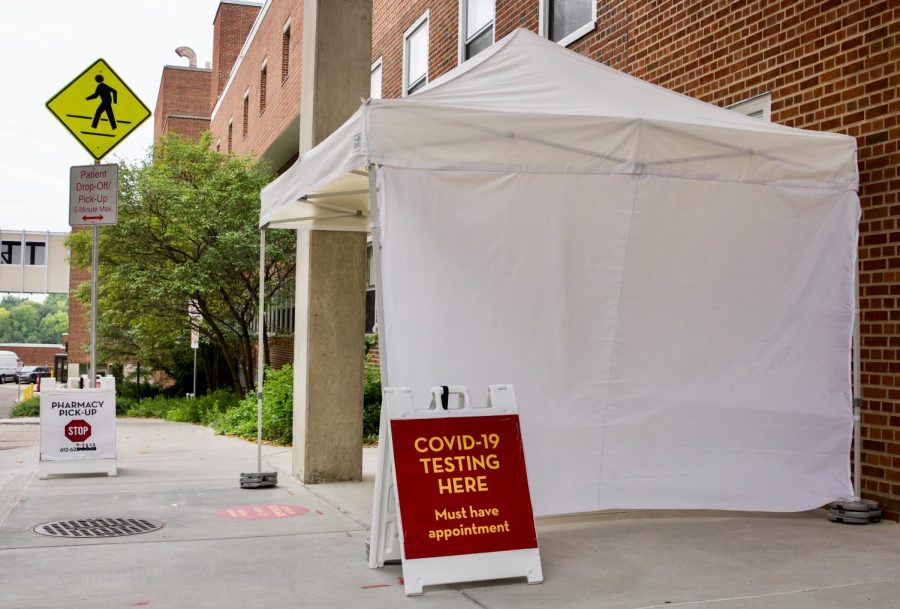A leading COVID-19 expert from the University of Minnesota has reported that growing numbers of students around the country are refusing COVID-19 testing and contact tracing interviews — even if they have knowingly been exposed to the virus.
Dr. Micheal Osterholm, director of the University’s Center for Infectious Disease Research and Policy, discussed these concerns as the University prepares to resume some in-person classes, with a spike in COVID-19 cases highly likely. Various universities around the country are reporting more than 50% of students declining testing or contact tracing interviews.
“I’ve been talking to a number of college presidents and organizations around the country just because they are seeking out my input or advice,” Osterholm said. “There are a number of institutions that are reporting right now, where outbreaks have really grown sizable, that students are not participating in either additional testing or contact tracing.”
The universities and colleges around the country experiencing declines in student testing have not been shared publicly, Osterholm said.
Currently, these reports have not included students at the University of Minnesota.
“I’ve mostly heard about that sort of activity from friends and relatives who are in college as well, but it’s also not unheard of at the U of M,” said University student Oscar Wiestling in an email to the Minnesota Daily. Though Wiestling said he believes reports of students unwilling to cooperate with COVID-19 testing could be exaggerated, “…[i]t’s the students that refuse to distance and wear masks that are the grand majority of the problem, although those refusing to be tested may fall into that category as well.”
Students’ unwillingness to be tested may stem from a fear of receiving disciplinary action, such as termination of their University housing contract, if they are found to be breaking guidelines.
“Students have voiced to people like me that they don’t want to be responsible for some of their friends having to go into quarantine. So they will often say, ‘I don’t want to even know’ and ‘I don’t want to give you any names because if they go into quarantine, then I’m busted and going to get in trouble,’” Osterholm said.
First-year student Liam Nekich said he has noticed this among his peers.
“They don’t want to know if they have COVID or not, because it’s relatively new and probably scary to them,” Nekich said.
A lack of education on the full risks of COVID-19 may also be contributing.
“I think the schools probably need to push the message that the purpose of testing is not to get anyone in trouble, and that a positive test wouldn’t result in any punishment … but rather just the mandatory two week quarantine,” said Abir Majumdar, a Ph.D. pharmacology student at the University.
Wiestling said he would be willing to be tested regardless of consequences.
“The U has been rather insistent that we go and get tested if we have a fever or symptoms. If I were attending a university where reporting symptoms of COVID broke university policy, I imagine I’d still be willing to be tested or interviewed about it,” Wiestling said.
Educating students on virus transmission and encouraging testing will be crucial in preventing the spread of COVID-19 on campus, Osterholm said.
“We’re not trying to get anyone in trouble,” he said. “We’re trying to stop transmission. I think all you can do is just educate these individuals as to why the risk is what it is.”













praiseinterracialmarriages
Sep 22, 2020 at 5:33 pm
I certainly hope students with symptoms will go in for testing. The thought of spreading the disease to other students, faculty and staff is something with which these young adults should concerns themselves. Death is one option for some of those affected by the virus. Loss of legs due to amputation from some of the effects of the virus are not unusual. Prolonged problems with one’s heart and lungs is yet another concern that students should consider.
Operating a gun and killing someone by accident is considered negligent homicide. Students who are old enough to attend college do not have the option of being considered “busted” by their friends if they get others sick. They may be responsible for killing an elderly professor or grandparent, or a parent with a pre-existing condition. Deaths of students in their twenties and their thirties is not unheard of.
No, students at my University of Minnesota’s are responsible for getting tested if they have symptoms of this virus. They are responsible for the health and safety of their friends and peers. If they do not submit for testing, their tuition should not be refunded to them, and they should face expulsion with a record on their transcript that they were in violation of campus health and safety policies and may have contributed to the illness and death of those who they foolishly considered to be their friends — and who those friends foolishly considered to be on their side during the worst pandemic in the history of the twenty-first century. Friends don’t let friends drive drunk; nor do they tolerate their “friends” who put their lives and the lives of their loved ones in jeopardy.